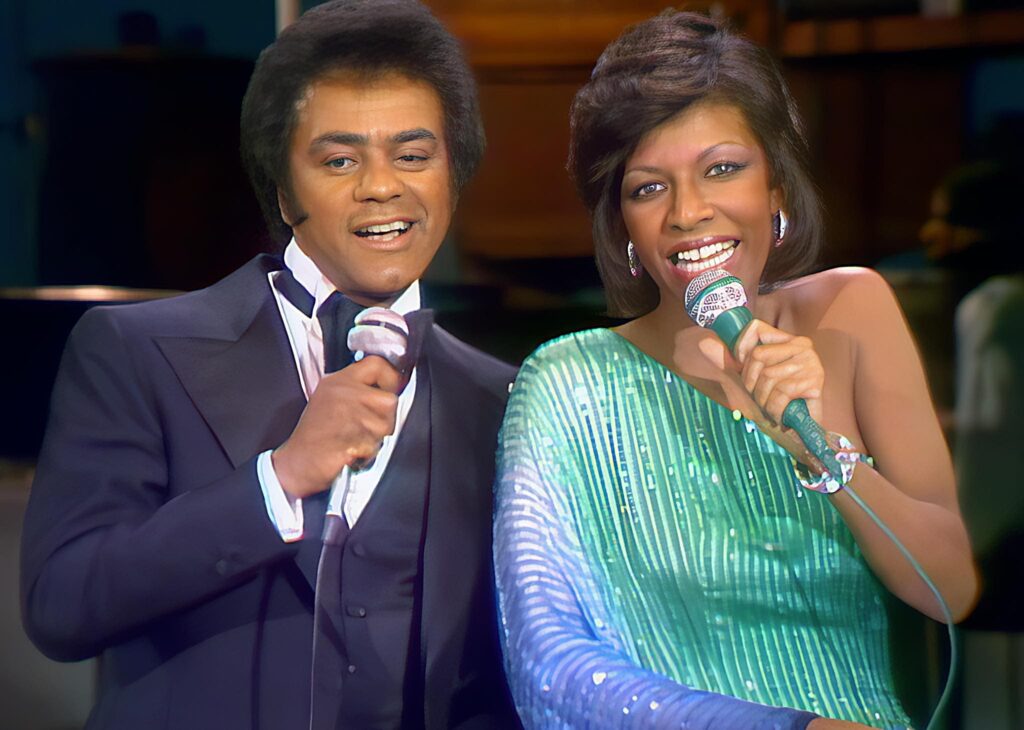
The magical moment of realization when two lonely hearts discover their shared destiny.
If you lived through the 1950s and early 60s, a time when the velvety sound of a beautifully orchestrated pop ballad could stop the whole world on a dime, then the name Johnny Mathis is synonymous with romance itself. His voice was—and remains—a unique instrument: supple, soaring, and capable of infusing the simplest lyric with deep, resonant emotion. It is this incomparable talent that he brought to “Small World,” transforming what began as a theatrical piece into a sublime, unforgettable chart success that became a fixture on every jukebox and hi-fi.
The song’s origins lie not in the pop studio, but on the bright lights of Broadway. “Small World” was written by the legendary team of composer Jule Styne and lyricist Stephen Sondheim for the 1959 musical masterpiece, Gypsy, a show about the ultimate stage mother, Rose Hovick. In the musical, the character of Rose sings this song to Herbie, a former talent agent, in an expertly manipulative attempt to convince him to manage her daughters’ act and, more importantly, to become her life partner. The song is a clever, lyrically intricate piece of theater, where Rose observes the “small world” coincidence of their meeting and their shared desires, subtly guiding Herbie toward a romantic commitment.
However, the definitive recording for the popular audience came from Johnny Mathis. Released as a single in 1959, Mathis’s version successfully extracted the sentiment from the theatrical setting and translated it into universal, heartbreaking romance. This single, produced by the famous Mitch Miller and arranged by Glenn Osser, became a major commercial triumph, reaching No. 20 on the Billboard Hot 100 chart. While Broadway legend Ethel Merman sang the song with brash, theatrical optimism on the cast recording, Mathis imbued it with his signature tender vulnerability, making the “small world” notion feel less like a calculated ploy and more like genuine, wondrous destiny.
This track captures the essence of that hopeful, post-war era when optimism and sentimentality reigned supreme in popular music. His arrangement is rich and swelling, using a full orchestra to build that sense of cinematic drama and emotional inevitability. For those of us who remember slow-dancing to this song, or having it whisper from the radio on a lonely night, it was a confirmation that no matter how vast or intimidating the world seemed, two people could always find their way back to one another. The lyric beautifully muses on the idea that despite the billions of people in the world, the person you are meant to be with is inevitably right there, a small world indeed.
It is a stunning example of how Johnny Mathis became The Voice of Romance. He wasn’t just singing; he was sighing, dreaming, and reflecting the most intimate hopes of his audience back to them. Alongside hits like “Chances Are” and “Misty,” “Small World” is a cornerstone of his legacy, representing the era when the Great American Songbook was seamlessly joined by brilliant new compositions from the American Musical Theatre, all delivered by an unparalleled vocal stylist